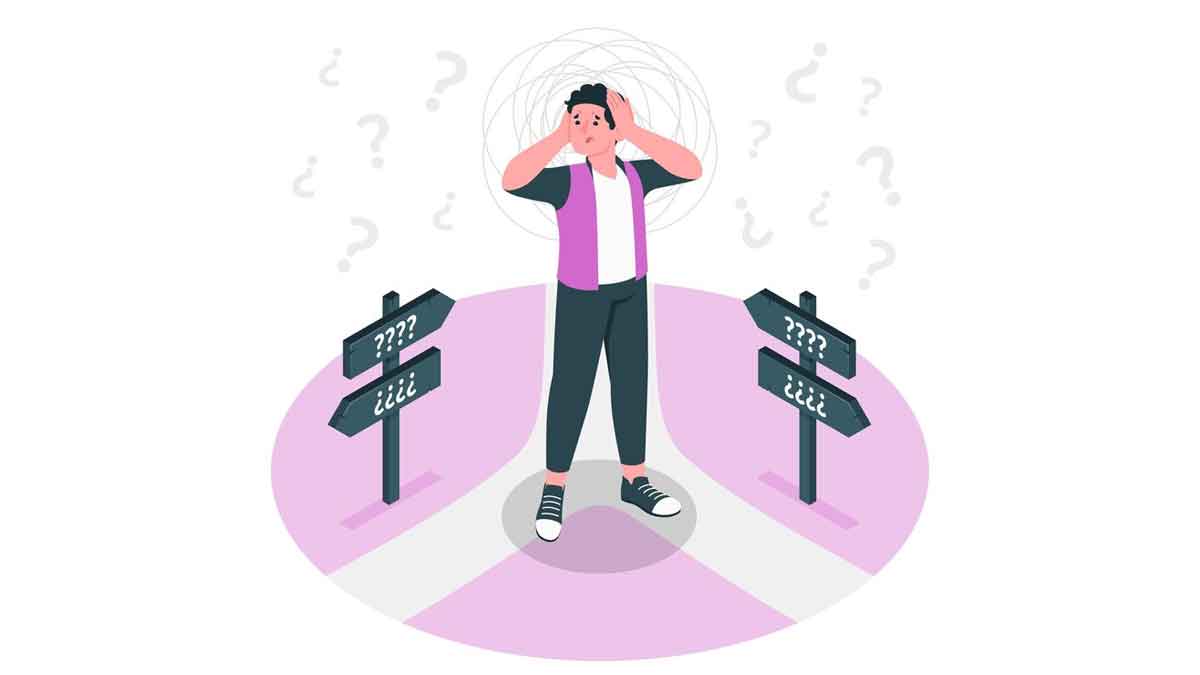
Making decisions is an inevitable part of life, whether small, like deciding what to eat for breakfast, or big, like making life-changing decisions. However, for some individuals, decision-making can be overwhelming, leading to a state of mental gridlock known as decision paralysis. This happens when there are too many options, making people feel stressed, overwhelmed, and anxious. We spoke to our expert, Dr Syeda Tasneem, MS Psychology, Clinical Psychologist, Psychotherapist, Counselling Psychologist, Apollo Spectra Hospital, Bangalore, who explained decision paralysis and how to deal with it.
Table of Content:-
The inability to make choices, even when faced with seemingly simple options, can be a symptom of underlying imbalances in the body and mind, said Tasneem. According to a study by the Multidisciplinary Digital Publishing Institute (MDPI), having too many alternatives can lead to decision fatigue because it can be difficult to choose one.
Physiological Factors

Dr Tasneem listed the physiological factors behind decision paralysis as follows:
- Neurotransmitter imbalances: Deficiencies in dopamine, a neurotransmitter linked to motivation and reward, can contribute to indecisiveness and a lack of drive to make choices.
- Stress hormones: Chronic stress can elevate cortisol levels, impairing cognitive function and making it difficult to weigh options.
- Gut-brain axis: An imbalanced gut microbiome can influence brain chemistry and neurotransmitter production, potentially impacting decision-making abilities.
- Nutritional deficiencies: Deficiencies in essential nutrients like B vitamins, iron, and magnesium can affect cognitive function and contribute to feelings of fatigue and overwhelm, hindering clear decision-making.
Also Read: International Self-Care Day: Experts' Take On Nurturing Mind And Body
Psychological Factors

Here are some of the psychological factors contributing to decision paralysis, as listed by Dr Tasneem:
- Perfectionism: The fear of making ‘wrong’ choices, often tied to perfectionism, can lead to analysis paralysis and indecision.
- Low self-esteem: Doubting your judgement and abilities can make it difficult to trust your decisions and take action.
- Anxiety: Underlying anxiety can amplify negative thoughts and make it difficult to cope with uncertainty, leading to hesitation and indecisiveness.
- Past experiences: Negative experiences related to past decisions can create a fear of making mistakes, impacting future choices.
Also Read: Overthinking Is Sabotaging Your Mental Health, Here’s What You Can Do About It
Functional Medicine Approach To Decision Paralysis

Dr Tasneem listed the management measures as follows:
- Comprehensive assessment: A functional medicine practitioner will perform a thorough assessment, including lab tests, questionnaires, and potentially genetic analysis, to identify the underlying root causes of decision paralysis.
- Personalised treatment plan: Based on the assessment, the practitioner will develop a personalised plan that may include dietary modifications, nutritional supplements, stress management techniques, cognitive-behavioural therapy, and other lifestyle interventions to address the identified imbalances and improve decision-making abilities.
- Focus on overall well-being: Functional medicine emphasises addressing the body and mind as a whole, aiming to optimise brain function, manage stress, and support emotional well-being to create a foundation for clear and confident decision-making.
Benefits of Functional Medicine Approach
- Identifying and addressing root causes: By targeting the underlying physiological and psychological factors contributing to decision paralysis, functional medicine offers a long-term solution rather than simply masking the symptoms.
- Improved cognitive function: Addressing nutritional deficiencies, hormonal imbalances, and gut health can enhance cognitive function and clarity, facilitating better decision-making.
- Reduced stress and anxiety: Stress management and emotional regulation techniques can help individuals manage uncertainty and make more confident choices.
- Enhanced well-being: Addressing the mental and physical factors impacting decision-making can holistically improve overall well-being and quality of life.
Bottomline
Dr Tasneem concluded, “Decision paralysis can be a complex issue with various contributing factors. Consulting a qualified practitioner can provide individualised guidance and support in identifying the root causes and implementing a personalised approach to overcome decision paralysis. By taking a comprehensive approach that addresses both physical and psychological aspects, you can regain control over your choices and lead a more fulfilling life.”
[Disclaimer: This article contains information provided by a registered healthcare professional and is for informational purposes only. Hence, we advise you to consult your expert if you are dealing with any health issues to avoid health complications.]
Also watch this video
How we keep this article up to date:
We work with experts and keep a close eye on the latest in health and wellness. Whenever there is a new research or helpful information, we update our articles with accurate and useful advice.
Current Version